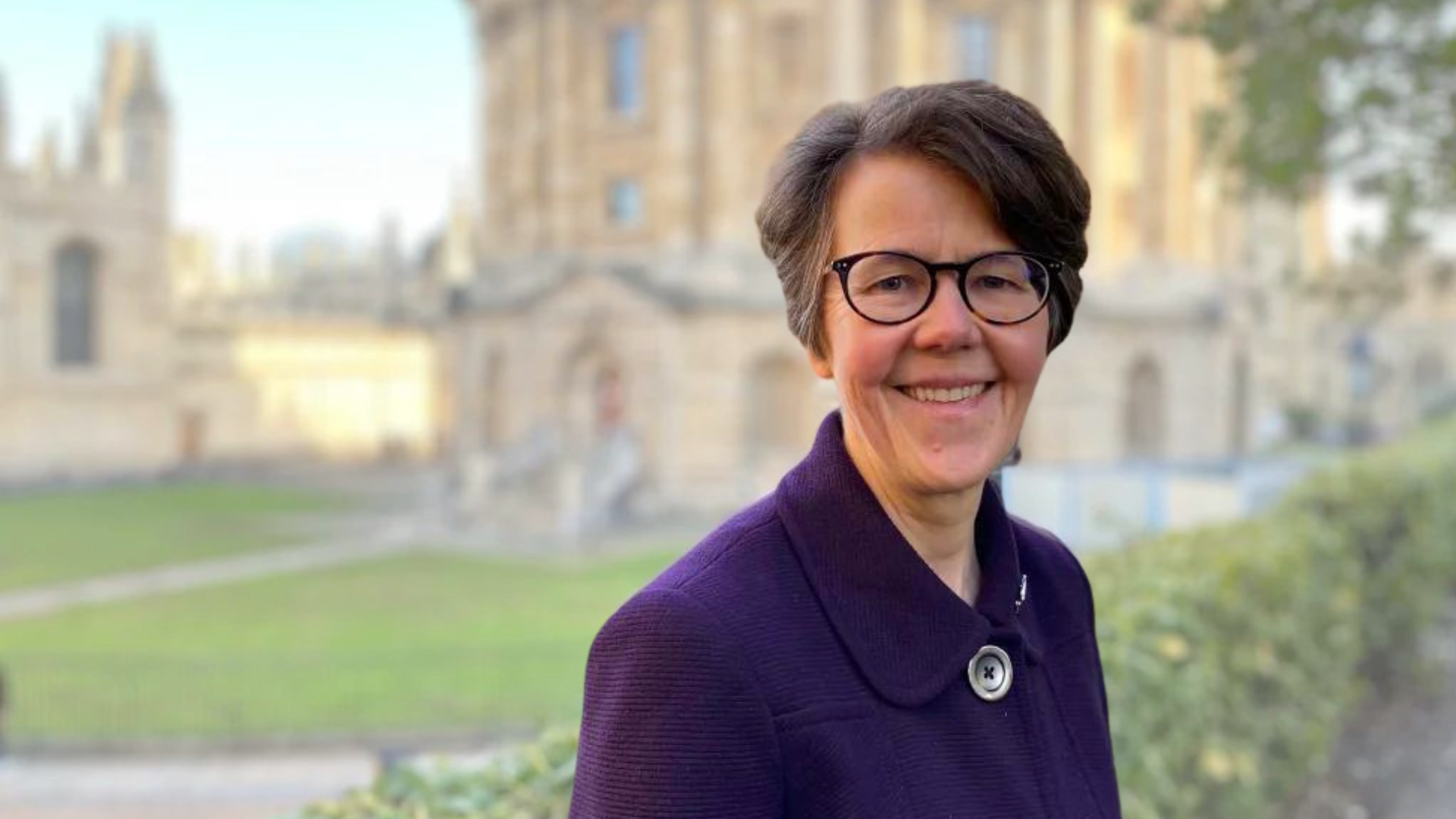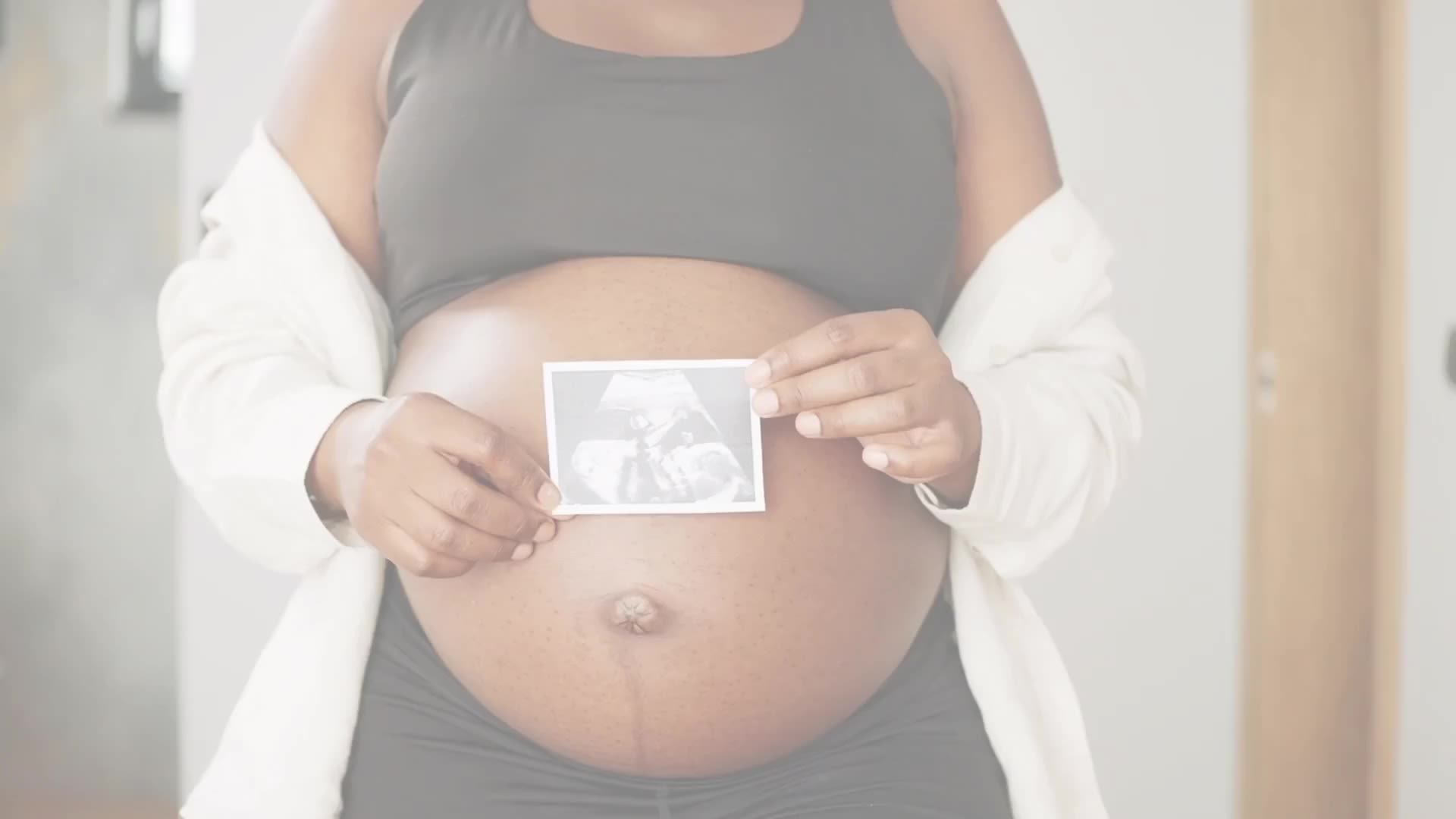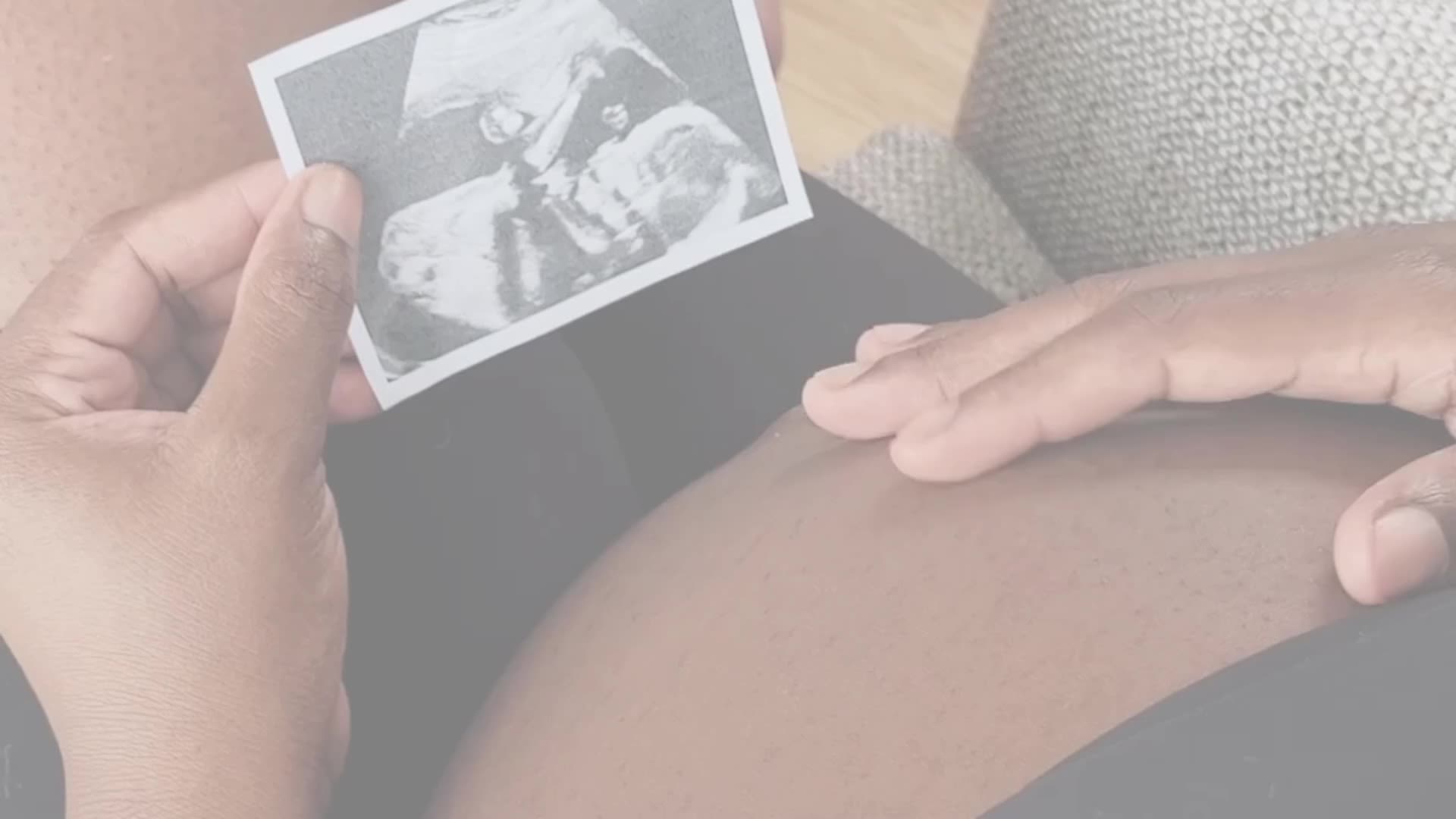Improving maternal mental health provision

Professor Marian Knight is an unlikely influencer.
Today, she has been inundated with clamouring interview requests and has appeared on multiple live media programmes. It is the sort of attention dreamt of by aspiring ‘celebrities’.
The self-effacing Oxford Professor of Maternal and Child Population Health, however, is genuinely influential, although clearly doing this through somewhat gritted teeth.
This is not how she would like to spend her days. She is a lot more comfortable with data and research than the spotlight. But Professor Knight’s work drives national change and debate and her advocacy for women makes her a real influencer and a role model for women in medicine.
Listen to Professor Marian Knight discuss maternal mental health on the 'Futuremakers: Brain and mental health' podcast series
And today she has set aside personal comfort, and embraced the opportunity to talk about something important: the deaths of women, in particular women from ethnic minority groups, who are considerably more likely to die during or after pregnancy and childbirth than white women.
Professor Knight frequently apologises for ‘banging on’, but she is keen to explain the important implications of the public health research.
When she decided to move from hands-on medicine to public health, some in the medical profession still saw it as having something to do with ‘drains’ or the plague and had visions of large beaked masks.
Today’s latest research completely puts paid to any such conception.
Highlighted in April by a parliamentary report on maternal health, it reveals that, in the UK, although the numbers of women dying are small, there are ethnic disparities in maternal deaths during pregnancy or in the year after birth.
It is this that has filled her inbox with media enquiries and dragged the Public Health Professor into radio studios for early morning appearances on air.

Professor Knight’s research is into national-scale maternal health and the research behind the report came from her Oxford team.
Looking at the hard data, they found pregnant or recently pregnant Black women were four times more likely to die than White women.
Pregnant or recently pregnant women living in deprived areas were two times more likely to die than those living in the wealthiest areas. This is not deaths in childbirth, which are vanishingly small in number, but deaths around pregnancy and in the first year after birth.
Socio-economic factors are important, she says. All women in more deprived areas are more likely to die around pregnancy than those in wealthy income groups.
But, she says, even taking into account socio-economic factors, ‘The numbers are small but the difference in terms of race doesn’t disappear.’
She says emphatically:
‘You cannot dismiss the ethnic difference’
Professor Knight admits to feeling somewhat embarrassed that she, a middle-class white academic, should be making public pronouncements on such matters.
She points out that, excellent charities and pressure groups from diverse communities have been highlighting the issue, and she adds, ‘But if I didn’t say anything, that would be worse.’

Inside the Richard Doll Building, home of Oxford Population Health and the National Perinatal Epidemiology Unit (NPEU)
Inside the Richard Doll Building, home of Oxford Population Health and the National Perinatal Epidemiology Unit (NPEU)
Professor Knight genuinely wants to be an influencer, in this respect at least, although she warns there is ‘no silver bullet’ or easy answer.
The problem is, Professor Knight says, pregnancy care, and health care more generally, is basically designed for middle class white people. It is not that most midwives and obstetricians, are outliers and discriminate against women of ethnic minority backgrounds.
Some say the NHS has issues of systemic racism – something hotly disputed centrally.
Professor Knight has her own views. She says, ‘Prejudice is not restricted to maternity care. Many women are not listened to, and the overlapping prejudices are illustrated by this quote from a recent enquiry… "It is a struggle being a woman, it is a struggle being pregnant and it is a struggle being Black, now imagine being all three."’
She looks embarrassed by her own vehemence, ‘The older I get, the happier I am to get on my soap box…
'it is important to be an advocate and an ally for women. It would be worse to say nothing, wrong to ignore this issue.'

Professor Knight’s research has shown many of the deaths of women around childbirth are connected to comorbidities: heart attacks, diabetes and obesity, for example, rather than failings in maternity care around birth.
This is, she says, partly because women are having babies today when they are older, with pre-existing conditions. And pregnancy is very hard on a woman’s body.
Managing such risks in pregnancy is a key part of maternity care today and women from disadvantaged and ethnic minority backgrounds who suffer from comorbidities, are particularly in need of expert individual care.
‘There needs to be training of staff around cultural differences…and how to care for women with co-morbidities, who have higher rates of severe complications’
Concerningly, the data also reveal 15% of women’s deaths around childbirth are by suicide, with almost all happening in the year after giving birth.
‘Maternal mental health is of pandemic importance. And it is a growing concern among young disadvantaged women,’ she says.
Why is this such a problem in the UK?
‘We count maternal deaths in the year after birth, and many countries do not,’ explains Professor Knight simply.
She continues, ‘Things have changed and there is now a recognition of the importance of mental health during and after pregnancy. It is another area of change in maternity medical care.’
Societal change takes a while to feed through, she says.
‘There’s a long way to go. But things have already changed. In 2000, we were seeing women dying from postpartum psychosis. There was a lot of awareness around severe mental distress. There are almost no women dying in those circumstances today.
‘The women dying by suicide often have a history of mental health problems. We need to be thinking about them, post-pregnancy. Women who have lost their baby or have had their baby removed are particularly in need of more support, but often get less.’
Professor Knight adds:
‘One in 10 pregnant women now have some mental health problem in the postpartum year. This includes a wide range of conditions and it is often not taken sufficiently seriously.’

It is a very different landscape from when Professor Knight did her medical training and started work as an obstetrician.
‘I loved it,’ she says, of being doctor. ‘But I wanted to be a researcher– and I wanted to make a real difference for women.’
‘Public health physicians work at the population level and my research can therefore change the lives of many women and not just a few – largely by changing policies and services, around preventive medicine, for example. Being a researcher in public health meant being able to have some control over changing things.’

Professor Knight during a road trip from Cambridge to Kenya - medical projects undertaken en route, via the Sahara desert
Professor Knight during a road trip from Cambridge to Kenya - medical projects undertaken en route, via the Sahara desert
As well as influencing public health and medicine, Professor Knight is keen to promote women in education in general and the sciences in particular. As the mother of three daughters, she is proud to have played a part in encouraging all of them in their desire to pursue STEM subjects, and one has followed her into medicine, ‘It’s a lot harder for junior doctors now.’
Professor Knight admits with some amusement that she did not really have a choice in which direction she was to go.
Her mother was a maths teacher and her father taught at the medical school in Birmingham, so a combination of the two was definitely on the cards ‘By the time I was at medical school, I knew I didn’t want to do surgery, but I did want to work related to pregnancy.’
‘I realised, working in Population Health, I could make a real difference to pregnant women’
It was not all plain sailing, though, she says. She took until the fifth attempt to secure her first funding to undertake post-doctoral research. But, with a genuine influencer’s recognition of the importance of impact, she is a firm advocate of medical students heading for the more academic route she has followed.

Professor Knight completed her DPhil at Lincoln College, Oxford
Professor Knight completed her DPhil at Lincoln College, Oxford
‘I love talking to people about wider careers in medicine. Population Health is vitally important. It’s not just to do with drains. It is a way to have an impact on lots of people.
The pandemic probably means more people understand that now.
For me the pandemic was incredibly hard in many ways, undertaking the critical research needed to guide care for pregnant women, while, like many others, dealing with personal tragedy.
Counting the deaths of women who had declined or not been offered a vaccine was particularly hard. I hope we will see a plan for pregnant and postpartum women in any future pandemic, so we never see what we have seen happen again.’



